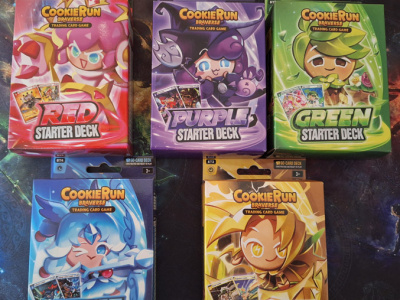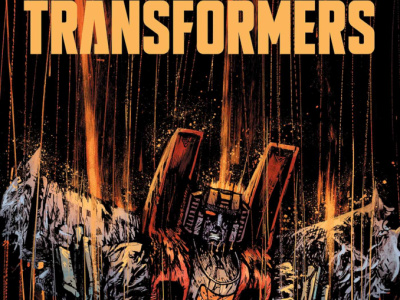The ICv2 Awards are the on-line continuation of a tradition that began in Internal Correspondence, the print predecessor of ICv2, over a decade ago. These awards are given as a way of reflecting on the events of the year and to draw some conclusions from them. They're based entirely on the business impact of events on retailers, as determined by the editorial staff of ICv2.com.
Comic Phenomenon of the Year--Manga in Specialty Retail Chains
Although this is a trend that had strongly begun in 2001 (when Tokyopop was the largest graphic novel publisher in bookstores, see 'Who's the Biggest Graphic Novel Publisher?'), 2002 ratcheted up the phenomenon to a level that would have been unthinkable only a few years ago. BookScan numbers for a recent week showed manga titles in all of the top ten graphic novel slots, eighteen of the top twenty, and 40 of the top 50 (see 'Manga Dominate Graphic Novel Sales in Bookstores'). Most of those were from Tokyopop, which led the way with its amazing manga trade paperback publishing program in 2002. That program, which packaged manga in 'authentic' right to left formats under $10, was not only successful for TV properties, but also showed that properties previously unknown in the U.S., such as Love Hina and Chobits, could sell to mall kids here.
Other channels, including music and video chains, also added substantial manga displays during 2002, which continued the trend of showing this exciting genre to young consumers in places where they shop for other products (see 'Suncoast Adds Manga Spinners').
Deal of the Year -- Gemstone To Publish Disney Comics
Just as the plea was going through our Talk Back section for more comics for kids, Steve Geppi's Gemstone Publishing announced a major licensing agreement to publish new and old Disney material for U.S. audiences (see 'Interview with Steve Geppi -- Part I,' and 'Interview with Steve Geppi -- Part II'). The deal was impressive for its scope in packages (it includes periodicals, trade paperbacks, and hardcovers), its scope in editorial material (it includes material from around the world from the past, present, and future), its scope in territory (comic stores around the world will have the right to buy the U.S. editions) and because Geppi has re-assembled the editorial staff from Gladstone for this effort.
Comic Controversy of the Year -- No Marvel Overprints or Reprints, Part Deux
Although this was already one of our Top Comic Stories of the Year last year (see 'Top Comic Stories of 2001), Marvel's policy of keeping overprints tight and refusing to reprint periodicals in the same format to fill reorders from pop culture stores continues to stir vociferous reactions from pop culture retailers. Keeping the topic in retailers' attention this year were comments by Marvel President Bill Jemas: first, that most major retailers support the program and that statements to the contrary were untrue and promoted by a competitor (see 'Jemas Bristles at 'DC-Promulgated Lie''), and second, by providing his most detailed defense of the policy while tweaking it to allow almost immediate re-packaging of sell-outs into Marvel Must-Have editions (see 'Marvel's Jemas Tells the Truth About Over-Production').
Comic Flop of the Year -- LPC Bankruptcy
When the largest distributor of graphic novels to the book trade entered Chapter 11 this year (see 'LPC Group Files Bankruptcy'), not only did it interrupt distribution for some of the largest graphic novel publishers in the country, it also tied up their cash and in some cases threatened their very existence. Eventually the slack was taken up by Client Distribution Services, which formed a new graphic novel division (see 'CDS Graphic Novel Division Takes Shape'), and by Diamond Comic Distributors, which formed a new book distribution division (see 'Diamond Forms New Book Division'). Here's the scorecard of where the various publishers ended up (see 'Book Distribution Scorecard').
Comic Marketing Campaign of the Year -- Free Comic Book Day







